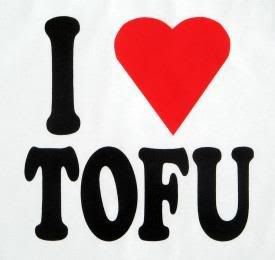Congratulations, Everybody! We’re on Day 7 already!
Many of you have asked what to do for protein. My two favorite sources are tofu and the protein powder I add to my morning smoothie (I use Rainbow Light Vanilla - it's the most cleanse-friendly kind I can find). But there are other sources.
Here's a great comprehensive article from Vegan Resource Group about finding meatless sources of protein, how much protein is required in the diet and a list of foods and their protein content.
I found a short explanation on RealAge, a favorite website of mine, and posted it below.
How to Stay Healthy Without Eating Meat
March 27, 2010 12:00 AM by Mehmet C. Oz, MD, and Michael F. Roizen, MD |
Q. …How can I get all the protein I need without eating meat? -- Colleen, Denver, CO
A. Ask a vegetarian. Plenty of folks who have sworn off meat and poultry (we're guessing you avoid both) can rattle off plant proteins as easily as you can spout the alphabet. Among them: beans, lentils, chickpeas and other legumes, tofu, edamame, nuts, seeds, low-fat cheese and yogurt, even potatoes. These are all good sources of protein that, when eaten as part of a varied diet, supply all the amino acids you need in a day. For comparison: A 3-ounce chicken breast delivers 27 grams of protein; a cup of lentils gives you a hefty 18 g. If you're not a vegan -- someone who doesn't consume any animal products at all -- you can also eat an egg a day (perfectly fine if you don't have a cholesterol problem). An egg has about 6g of protein. And of course there's fish. They're not only full of protein but some types are good sources of healthy omega-3 fats.
The truth is, you're better off getting your protein this way, instead of from a T-bone or turkey leg. Vegetarians tend to be healthier than carnivores -- they're thinner; have lower lousy (LDL) cholesterol, higher healthy (HDL) cholesterol, and better blood pressure; and are less prone to heart disease, diabetes, and cancer.
That’s a good explanation, but how much protein do you need? The standard method used by nutritionists to estimate our minimum daily protein requirement is to multiply the body weight...in pounds by .37. This is the number of grams of protein that should be the daily minimum.*
Here's a list of some of the foods you can turn to:
Beans (including soy)
Tofu, ½ cup 20 grams protein
Tofu, 1 oz, 2.3 grams
Soy milk, 1 cup - 6 -10 grams
Most beans (black, pinto, lentils, etc) about 7-10 grams protein per half cup of cooked beans
Soy beans, ½ cup cooked – 14 grams protein
Split peas, ½ cup cooked – 8 grams
Nuts and Seeds
Peanut butter, 2 Tablespoons - 8 grams protein
Almonds, ¼ cup – 8 grams
Peanuts, ¼ cup – 9 grams
Cashews, ¼ cup – 5 grams
Pecans, ¼ cup – 2.5 grams
Sunflower seeds, ¼ cup – 6 grams
Pumpkin seeds, ¼ cup – 8 grams
Flax seeds – ¼ cup – 8 grams
If you’re looking to drop some weight, be careful about the calorie counts of some of these foods, particularly the nuts.
I hope this helps and I hope everyone has a great weekend!
*http://lowcarbdiets.about.com/od/whattoeat/a/highproteinfood.htm; food list also from this source
Saturday, April 24, 2010
Subscribe to:
Post Comments (Atom)




No comments:
Post a Comment